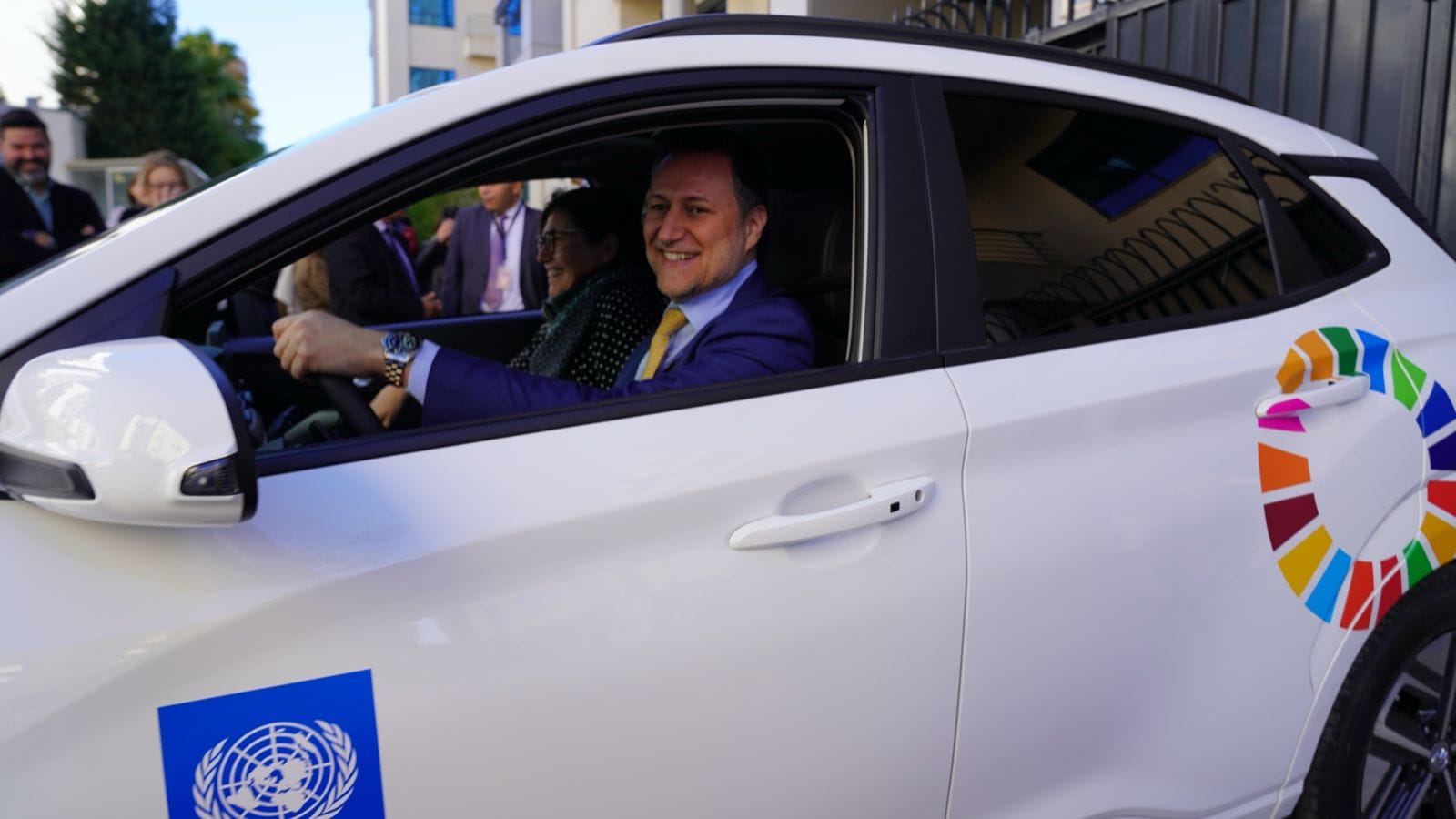Sandra Chemam, Communication Officer UNDP Tunisia
UNDP in Tunisia: Towards Green Mobility
1 février 2024

UNDP in Tunisia is intensifying its efforts towards a transition to green energy, reflecting its commitment to environmental sustainability. Recently, the organization took a significant step with the purchase of an electric vehicle for its operations in line with UNDP's global goal to reduce its carbon footprint by 50% by 2030. This initiative is part of a series of sustainable actions launched since 2022, including the installation of solar panels at the UN House, carried out in collaboration with UNDP Greening Moonshot's green energy team.
To ensure the successful deployment of green energy solutions, UNDP in Tunisia has developed a seven-step methodology specifically tailored to guide the entire electric vehicle (EV) integration process within the office. This comprehensive approach covers all essential phases, from the initial site assessment to post-installation and maintenance.
The adoption of an electric vehicle by UNDP in Tunisia reflects a concrete commitment to reducing the carbon footprint and actively supports the United Nations Sustainable Development Goals.
The proposed solution for the new electric vehicle considers the terrain specifics, distances to be covered, and the vehicle's objective. It is a model with a 74 kWh battery capacity, providing a real range of 385 km, equipped with a 7.4 kW AC charger.
In a context where Tunisia and many other countries increasingly face the impact of climate change, the introduction of an electric vehicle by UNDP sends a strong message, encouraging the
adoption of e-mobility practices. In this respect, the introduction of electric vehicles is at the core of Tunisia’s energy transition, as outlined in the country’s Nationally Determined Contribution.


Aside from climate-related benefits, the financial aspect also plays a crucial role in this decision. The reduced operating costs of electric vehicles offer long-term savings, while reducing dependence on fossil fuels contributes to cost stability and more efficient financial management. In this respect, it is important to note that the electric vehicle will be powered through the green energy produced by the solar panels installed at the UN House.
The acquisition of this electric vehicle by UNDP Tunisia demonstrates a commitment to innovation. By promoting the use of clean technologies, the organization is part of the transition towards more sustainable energy solutions, inspiring other stakeholders to follow suit.


This initiative represents another strategic step in the continuity of UNDP's actions in Tunisia, attesting to the organization's ongoing commitment to take concrete measures to reduce its carbon footprint.

 Locations
Locations